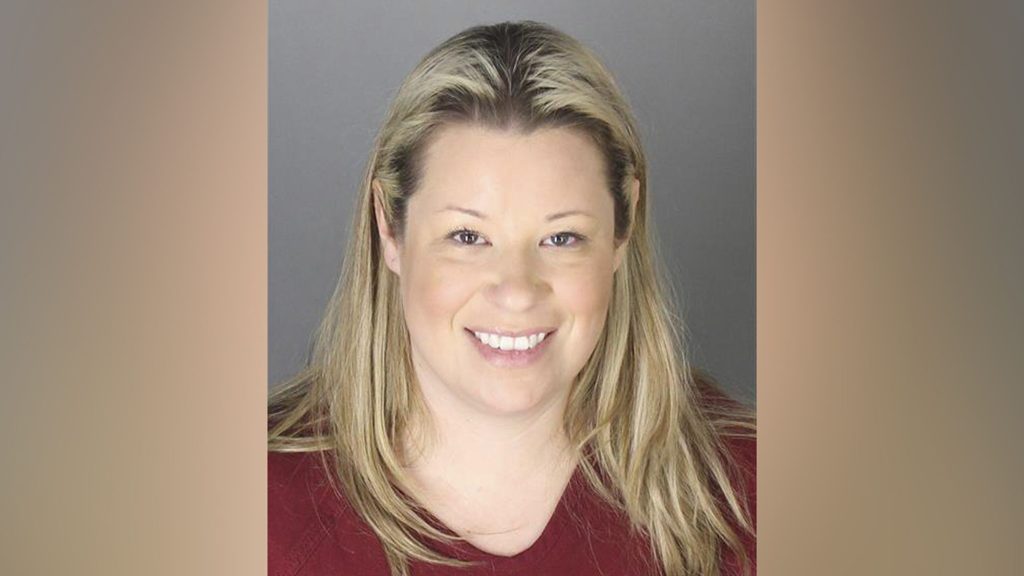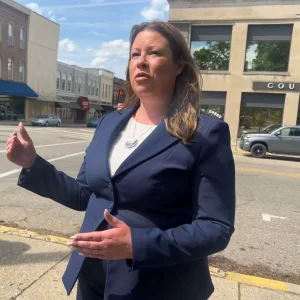Judge Bars Lawyer from Dominion Defamation Case for Severe Misconduct
3 min read

A federal judge has removed Stefanie Lambert, a lawyer facing criminal charges and known for promoting election fraud theories, from a high-profile defamation lawsuit filed by Dominion Voting Systems. The case centers on false claims made by Patrick Byrne, the former CEO of Overstock, about Dominion’s role in the 2020 presidential election.
Judge Moxila Upadhyaya’s decision comes after Lambert publicly leaked confidential Dominion documents, including internal emails, in clear violation of court orders. In her comprehensive 62-page ruling, Judge Upadhyaya condemned Lambert’s actions as “truly egregious misconduct,” emphasizing that Lambert’s intentional disclosure of these documents was aimed at causing significant harm. The judge criticized Lambert for repeatedly ignoring legal directives and for her role in disseminating “thousands, if not millions” of private documents without authorization.
The controversy involving Lambert and Byrne is part of a broader effort by some Trump supporters to discredit the 2020 election results. Byrne and Lambert have promoted unfounded claims that Dominion’s technology was used to manipulate the election outcome in favor of President Joe Biden. Lambert is also facing criminal charges in Michigan related to an alleged conspiracy to seize voting machines in an attempt to prove her voter fraud claims; she has pleaded not guilty to these charges.
Lambert’s misconduct included leaking Dominion’s internal communications to Dar Leaf, a right-wing Michigan sheriff known for investigating and publicizing baseless election fraud theories. Leaf subsequently made these documents public, exposing Dominion employees’ personal information such as names, email addresses, and phone numbers. This act of doxing resulted in real threats and harassment towards Dominion staff, as noted by Judge Upadhyaya.
 The judge’s ruling reflects a broader pattern of legal and ethical issues among those who have sought to undermine the legitimacy of the 2020 election. Other pro-Trump attorneys involved in similar efforts have faced professional and legal consequences, including criminal convictions and loss of their legal licenses.
The judge’s ruling reflects a broader pattern of legal and ethical issues among those who have sought to undermine the legitimacy of the 2020 election. Other pro-Trump attorneys involved in similar efforts have faced professional and legal consequences, including criminal convictions and loss of their legal licenses.
Judge Upadhyaya’s ruling was particularly notable because it is rare for a judge to disqualify an attorney from a case. However, she justified her decision by highlighting the exceptional nature of Lambert’s misconduct and its potential impact on the integrity of the legal process. The judge also stated that Byrne, by aiding in the leak of confidential materials, violated court orders and indicated that Dominion could pursue further sanctions against him.
Following the decision, Dominion’s spokesperson expressed appreciation for the court’s ruling, emphasizing the importance of holding Byrne accountable for his continued spread of falsehoods about the company. The spokesperson assured that Dominion’s case against Byrne would proceed, aiming to address the harm caused by his and Lambert’s actions.
At a contentious hearing earlier this year, Dominion had accused Lambert of blatantly breaching court orders concerning the handling of sensitive materials and alleged that she had hijacked the legal proceedings to propagate misinformation about the election. Lambert was arrested at the end of that hearing in Washington, DC, due to an outstanding warrant from her Michigan case. After spending one night in jail, she was released and subsequently faced her criminal charges in Michigan.
With Lambert now disqualified, Byrne has been given a month to secure a new attorney or decide to represent himself in the ongoing defamation case. The legal community and public observers are watching closely as the case continues to unfold, with significant implications for both the legal system and the broader discourse surrounding election integrity.